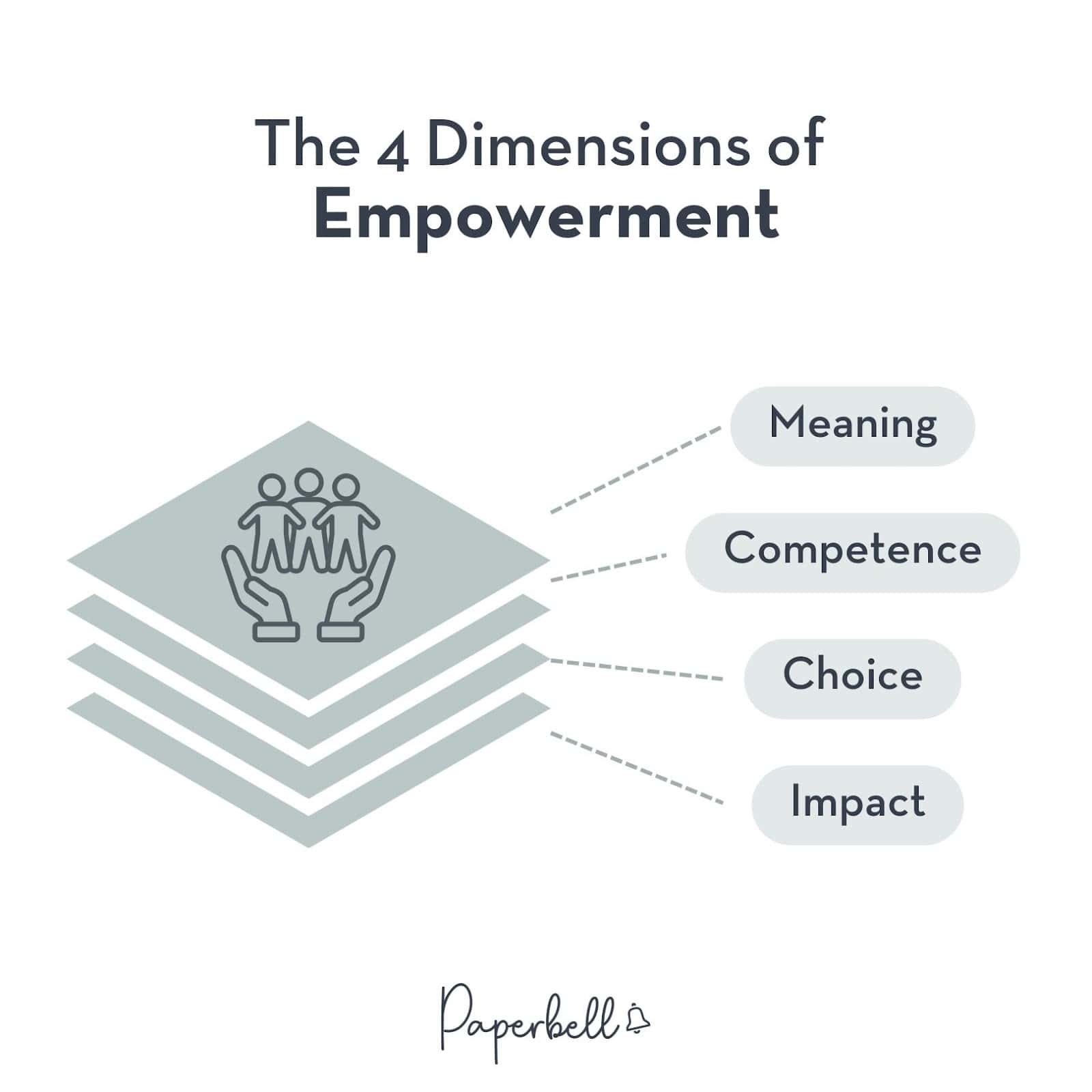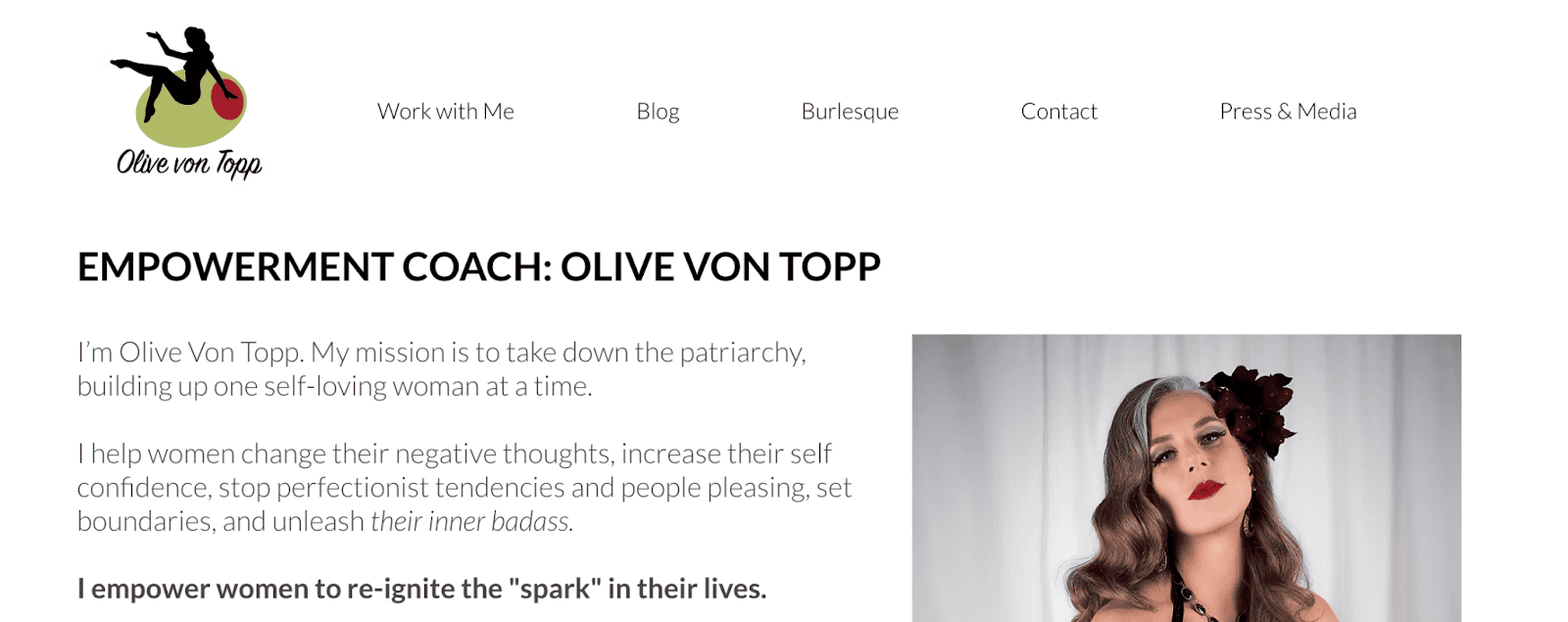While the internet is filled with motivational, feel-good content, watching it rarely leads to concrete, lasting change.
Empowerment coaches take a structured and individualized approach to help their clients develop confidence and consciously shape their lives.
Read on to find out what empowerment coaches do and how you may become one.
What Is an Empowerment Coach?
Empowerment coaches help clients build trust in themselves and take control of their lives instead of feeling controlled by circumstances or the opinions of others. This helps them embrace their true identity, own their choices, and take bold action towards their goals.
While life coaching approaches personal development by creating a vision and setting goals, empowerment coaching is specifically about helping clients overcome the inner limitations that block them from taking action.
Why Do We Need Empowerment?
As children, we experiment, take risks, and express ourselves without overthinking. However, as we age, we may absorb messages from our environment telling us we aren’t good enough or don’t have the right to be ourselves.
Over time, this can lead to learned helplessness—the idea that there’s no point in trying to change one’s situation. Even in societies with relative freedom, people may develop fears of rejection, blocked self-expression, and harmful self-beliefs.
While empowerment on a societal level aims to remove external obstacles to freedom, personal empowerment tackles internal barriers. This allows people to regain hope, advocate for themselves, and realize their full potential.
Empowerment coaching helps create positive change by helping clients recognize disempowering beliefs, challenge and reframe their self-perception, and take action despite fear or doubt.
Individual empowerment can also ripple into a positive influence on others.
✊🏼 Empowered leaders cultivate workplace cultures where people feel valued and driven to do their best work.
✊🏼 Empowered parents raise children who trust themselves and dare to try new things, even as adults.
✊🏼 Empowered teachers encourage students to think for themselves, take initiative, and embrace errors as learning opportunities.
Anyone who feels empowered is more likely to support and uplift others, rather than operating from a place of fear, competition, or scarcity.
What Happens in an Empowerment Coaching Session?
Empowerment coaching can be valuable for anyone who feels stuck, insecure, or like they’re waiting for permission to take action on what matters to them.
Beyond just saying a few encouraging words, an empowerment coach can:
- Help clients identify limiting beliefs that keep them stuck.
- Use mindset shifts, cognitive reframing, and self-awareness exercises to help clients break negative thought patterns.
- Encourage self-accountability so clients learn to rely on their intrinsic motivation rather than external validation.
- Complement cognitive models with somatic techniques like breathwork, visualization, or body awareness to help clients feel more powerful.
The 4 Dimensions of Empowerment
Empowerment has been proven to create tangible benefits at work, urging companies to invest in it. In their 1990 study, Kenneth W. Thomas and Betty A. Velthouse introduced a model identifying four dimensions of empowerment that enhance intrinsic task motivation:
- Meaning: The value an individual places on a task, aligning it with their personal beliefs and standards. When work is meaningful, employees are more engaged and committed.
- Competence: An individual’s confidence in their ability to perform tasks effectively. This self-efficacy leads to greater initiative.
- Choice: A sense of autonomy in initiating and regulating actions. Having control over work methods and pace leads to a more proactive attitude.
- Impact: The degree to which an individual believes they can influence organizational outcomes. Feeling that one’s actions make a difference boosts motivation and satisfaction.
These dimensions collectively contribute to increased workplace motivation and performance, helping employees and organizations reach higher levels of success.

How to Become an Empowerment Coach
Want to empower people for a living? Here’s how to get started.
1. Get Trained
While formal certification isn’t mandatory, it can give you credibility in a competitive market and train you on specialized knowledge, coaching skills, and methodologies needed to work with clients.
Consider taking programs that specialize in empowerment coaching, such as:
- Compass CBS’s Empowerment Coaching Certificate: Two-day foundational training at $1,548.
- Momentum’s Certified Empowerment Coach Training: An ICF-accredited 3-month program with a trauma-informed approach at $4,900.
2. Define Your Niche
Specializing helps you attract clients seeking expertise surrounding their specific problem. Choose a niche within empowerment coaching where you can offer the most value.
For example, both Olive von Topp and Anne McKeown are women empowerment coaches. However, while Olive focuses on setting boundaries and awakening sensuality, Anne helps female leaders speak up with confidence.

3. Create a Business Plan
Define your coaching philosophy, marketing strategies, pricing structure, and financial projections. This roadmap will give you clarity and focus to set up and grow a stable business serving your preferred target audience.
4. Set up Shop
To officially establish your business, you must register it as either a sole proprietorship or LLC. You may also want to consider getting coaching insurance to be on the safer side.
Next, set up a dedicated workspace, whether physical or virtual, and establish your systems for scheduling, client management, and payments. Paperbell will handle all of these for you and let you skip the tedious parts of running a coaching practice.
It also creates a neat website with separate landing pages for your packages at no extra cost—probably the easiest way to get your services online and start working with clients as soon as possible.
6. Sign Your First Clients
If you don’t have referrals from your training program right off the bat, you can reach out to your friends and professional network and ask for recommendations.
You can offer a few complimentary spots in your coaching program first to gain practical experience and gather testimonials.
Then, you can scale your clientele by networking within local and online communities, offering incentives to happy clients to refer others, or trying out marketing strategies to get cold leads.
FAQ
What Does an Empowerment Coach Do?
Empowerment coaches help clients build confidence, overcome self-doubt, and take control of their lives through structured coaching conversations and exercises.
How Much Does Empowerment Coaching Cost?
It varies widely, from $50 to $500+ per session, depending on the coach’s experience, methodology, and format.
Do You Need Certification to Be an Empowerment Coach?
No formal certification is required, but training in coaching methods or psychology can give you credibility and improve client results.
The First Step to Positive Change
If you want to dedicate your undivided attention to clients and give them the best experience, you must ensure your coaching practice is organized and hassle-free.
Paperbell runs your business from payments to bookings and contracts, allowing you to focus on making a difference in your clients’ lives.

It’s an all-in-one coaching website and client management tool that automates and simplifies your workflow, saving you a ton of time and letting you get creative with your packages.
Try Paperbell for free to see how it can transform your business.










